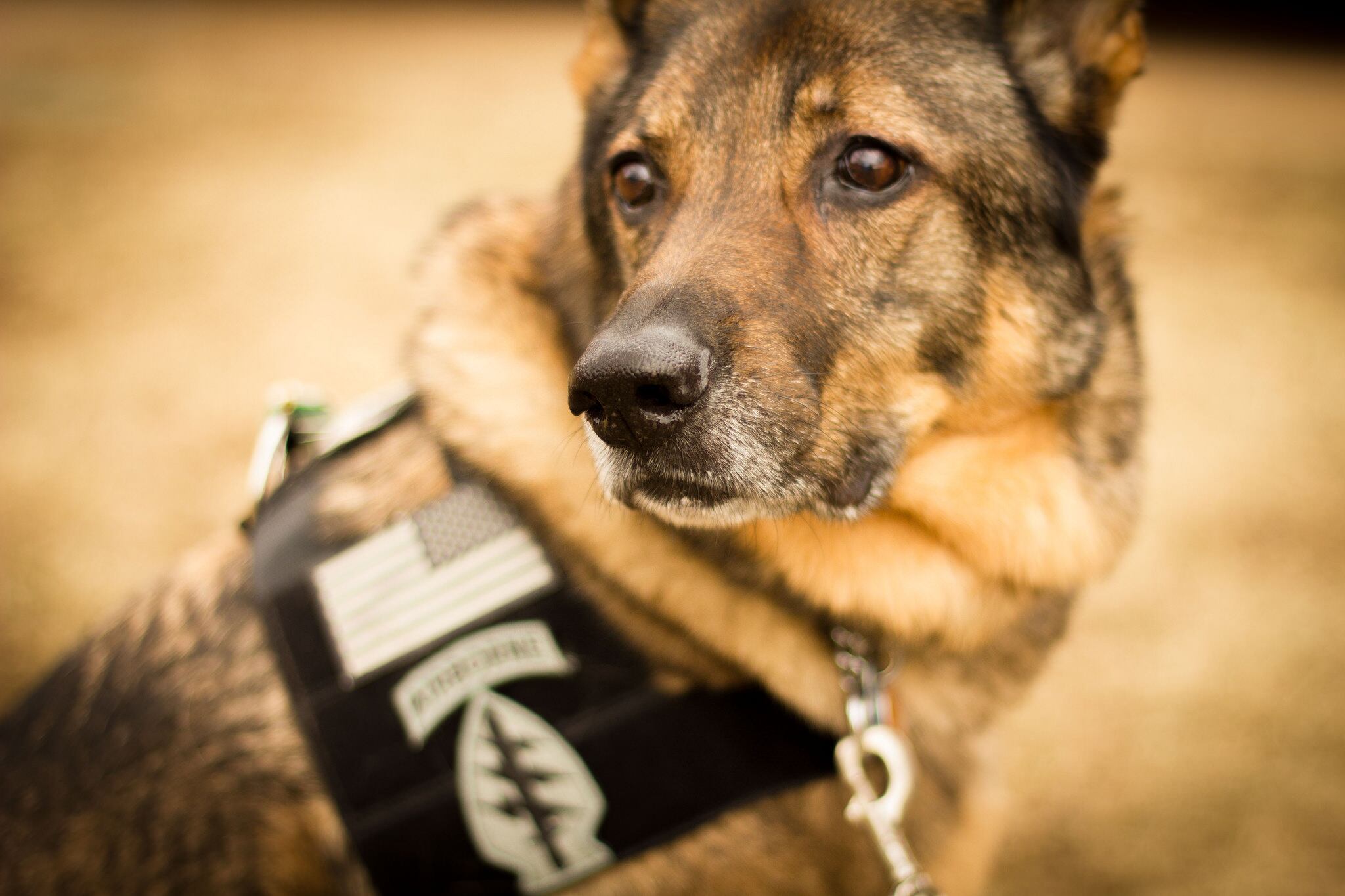Only Ellen could give Army veteran Josh Tucker the motivation to recover.
The two served together in Afghanistan, where Tucker endured a traumatic combat brain injury in 2011.
But it took about two years and the intervention of a congresswoman to get Ellen, a bomb-sniffing black Lab, back to Tucker.
"How would you deny someone this?" asked U.S. Rep. Kyrsten Sinema, an Arizona Democrat who helped return Ellen to Tucker, who is from Chandler but now lives in Virgina. "It makes no sense to have a talented dog like this sit in a runner (enclosure) when she could be helping a serviceman cope with PTSD."
A bill introduced last month is intended to make such reunions between soldiers and the dogs they served with more common.
Inspired by her experience helping Tucker, Sinema along with Rep. Erik Paulsen, R-Minn, sponsored the Military Working Dogs Retirement Act, which would require military working dogs retired overseas to be sent back to the States at government expense for their handlers, other servicemen and -women, or American families to adopt.
Since her return, Ellen has helped Tucker cope with his PTSD. She alerted his wife when he had a seizure, which Tucker said saved his life.
"As far as PTSD goes, she's good with detecting when I start to get upset by either distracting me or forcing me to leave," he said. "A lot of people go into combat and seek out other people who have been in combat because they can relate to them. Having Ellen around ... she's the only one that understands. That's been kind of a comfort."
Doug Miller, military working dog program manager at Lackland Air Force Base in San Antonio, said if a working dog can no longer pass tests related to its job or has medical issues, the military keeps the dog at the place of its last assignment.
Currently, military working dogs are adopted from the base where they are retired, either overseas or abroad, he said. Most of the time the dog's handler, a member of the kennel staff or another person in the unit will adopt it.
If not, the dog is put on an adoption list, which has over 1,200 volunteers waiting to adopt military working dogs. Miller said an adoption coordinator will first try to find a nearby volunteer.
"There have people who want to adopt dogs everywhere, and they get their name on the list," Miller said.

The Old Guard said goodbye to six military working dogs assigned to the 289th MP Company, 4th Battalion, 3d U.S. infantry Regiment with an awards ceremony on Feb. 6 on Joint Base Myer-Henderson Hall, Va.
Photo Credit: Army
The Military Working Dog Retirement Act would make it easier for the dog's handlers to adopt dogs when they are retired overseas.
In Tucker's case, Ellen wasn't retired because she was scheduled to deploy even though she didn't bond with her new handlers. She was kept off the battlefield and in a kennel in Germany.
The Tuckers had to wait for the Army to retire her. Sinema intervened to speed up that process and bring Ellen home.
"Right now, there's no requirement for the military to bring service dogs back to the U.S.," Sinema said. "What this (bill) will do is create and establish a procedures for working dogs to come home after they end their service just like the U.S. does when its brings home its other heroes."
Last month, Sinema discussed the bill with Phoenix-area military servicemen and their families at an advanced screening in Scottsdale of "Max," a movie about a military service dog that returns home to his handler after a traumatic experience.
The legislation was met with applause.
Joseph Bonivel, a 33-year army veteran who lives in Phoenix, said the legislation is long overdue.
Bonivel, who was a special-forces commander in Vietnam, said military service dogs worked with his unit delivering messages and checking for potential threats.
"They would give their life for you," he said. "They're very loyal. ... Truly a man's best friend."
A military service dog also helped Scott Perisol, a retired Army sergeant who now lives with his family and works in military intelligence at Fort Bragg, N.C.
About two years ago, Perisol had knee surgery and, like Tucker, found rehabilitation difficult.
"He was depressed. He wasn't able to do what he used to do and he didn't want to get out of bed and exercise and move like he was supposed to," said Faith Perisol, Scott's wife.
Through friends in the military, Faith learned about Bak, a service dog at a kennel in South Korea. Like Scott, Bak had bad knees but also problems with his shoulders, hips and stomach. His military handlers didn't adopt him because of the costs related to treating Bak's injuries.
Faith adopted Bak for her husband to help him heal. Because her family decided to take on Bak's medical bills, the military paid for Bak's trip back to the U.S.
After two years, Faith says he's helped Scott heal, as the two go for walks daily and have developed a bond.
"There was a need to have Bak in our lives to help my husband to bond to another wounded soldier. ... At least my husband could maybe connect to a dog in some way I wouldn't be able to help him," she said. "It really has changed our lives dramatically. I don't think we could ever repay him for how he helped our family."
When Faith learned of Josh Tucker's story through news reports, she contacted Josh's wife, Sherie, and shared her family's story.
Since then, the Tuckers have formed a network with military families who have benefited from having retired military working dog in their lives.
"It's hard to overstate the bond," Josh said. "They essentially become like your child. (The military families) are all really tight with their dogs and they've done wonders for them."





